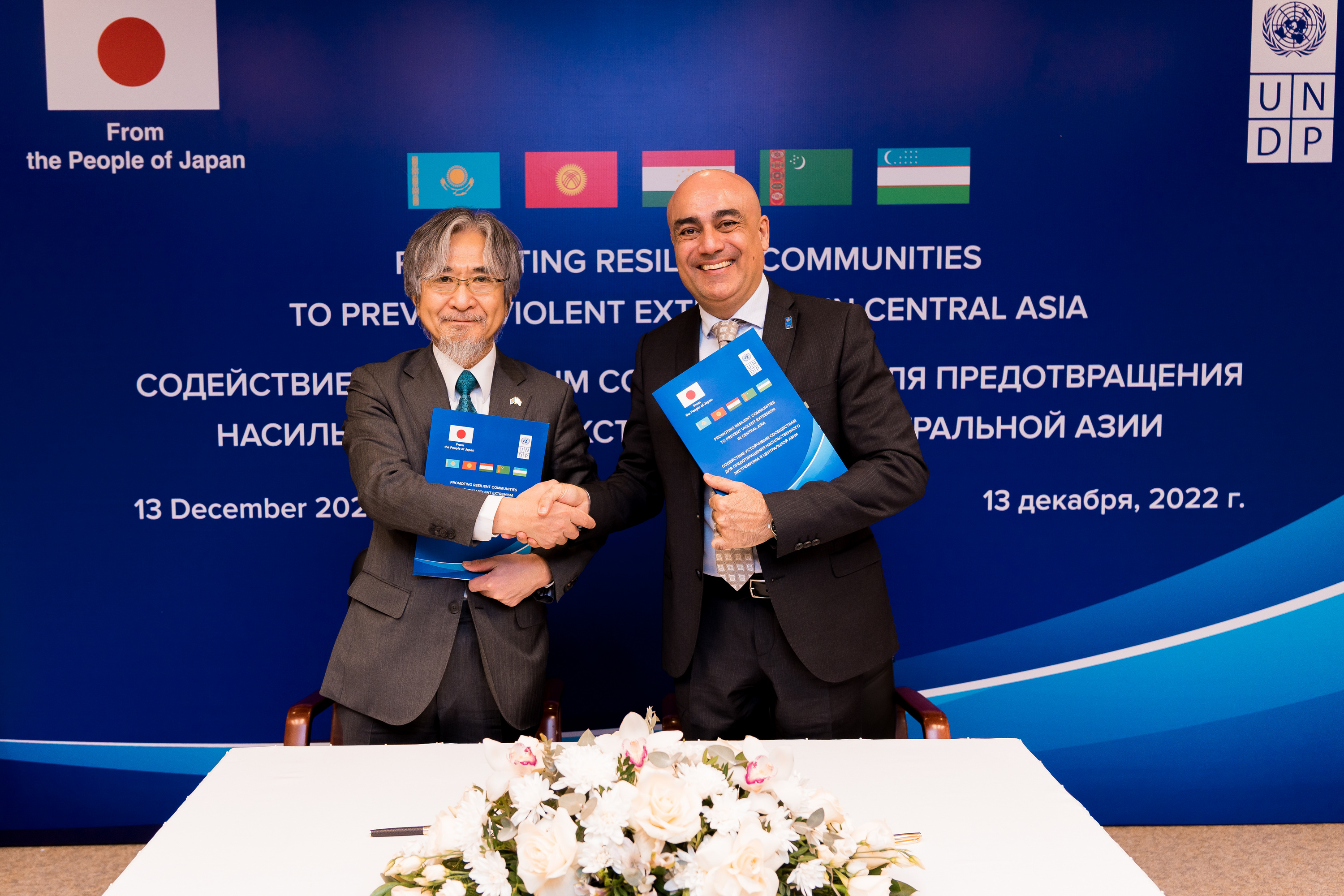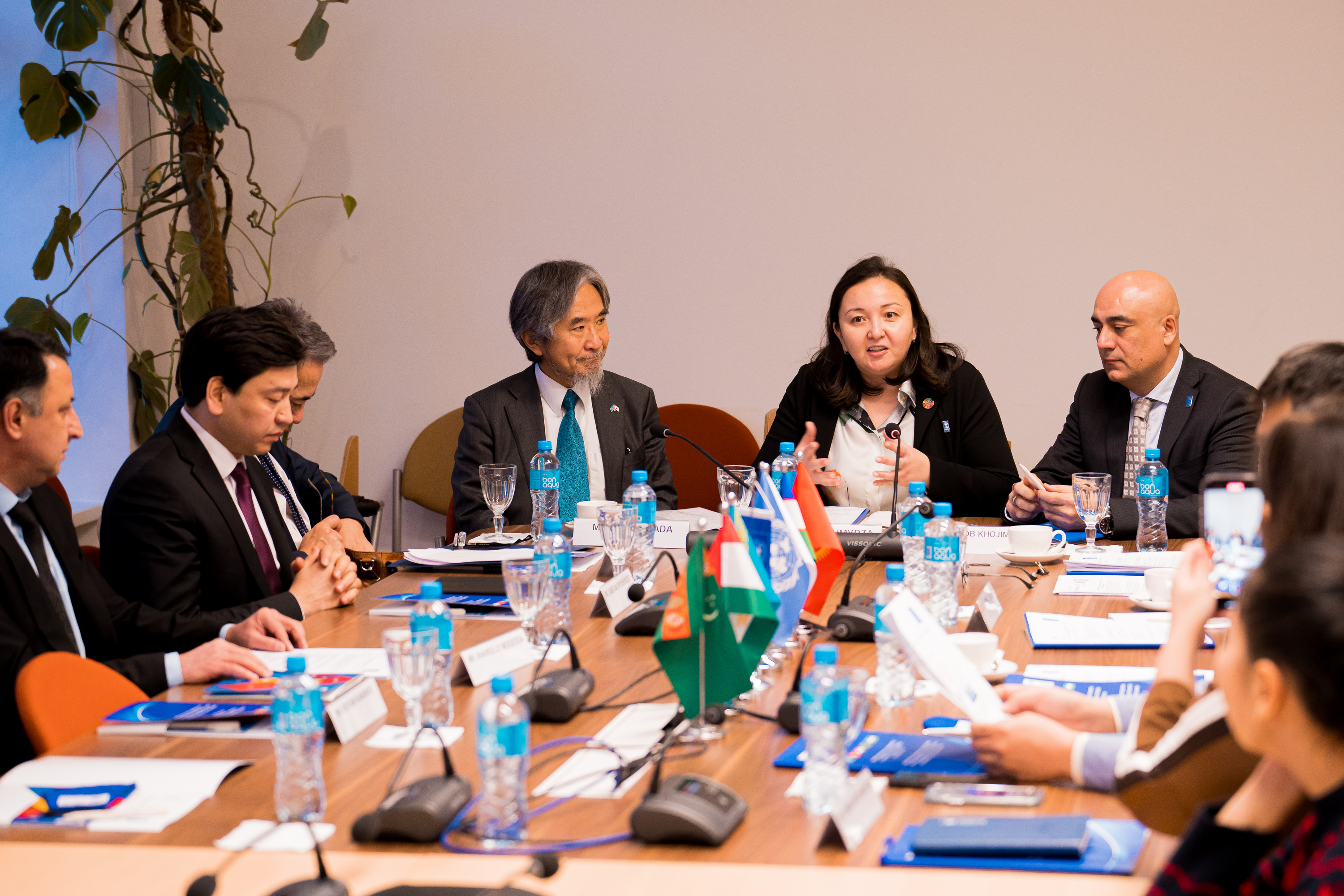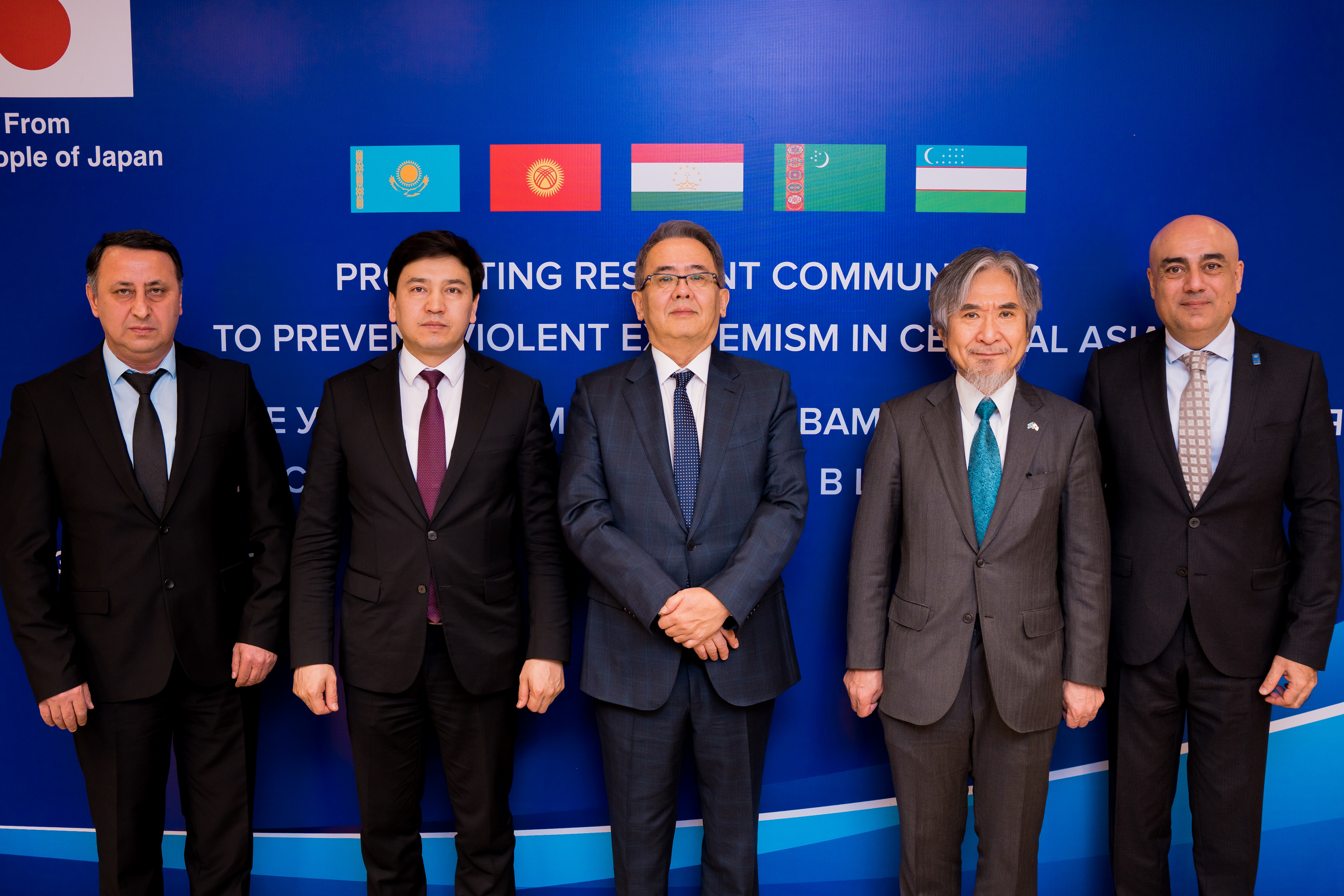Japan and UNDP embark on a new initiative to prevent violent extremism in Central Asia
December 13, 2022

13 December 2022, Astana, Kazakhstan - Japan and the United Nations Development Programme (UNDP) in Kazakhstan today signed an agreement to launch a new ¥584 mln ($4.1 mln) project "Strengthening Community Resilience and Regional Cooperation for Prevention of Violent Extremism in Central Asia". Building on the results of a first regional implementation (2018-2021) at the community level in Kazakhstan, Kyrgyzstan, Tajikistan, and Turkmenistan, the initiative aims to empower youth and strengthen social cohesion in countries across the region.
The rise of violent extremism and its spread across national borders remain of concern for Central Asian countries and threaten to undo the development gains of the past three decades. Poverty, inequality, corruption, limited access to public services and justice, as well as a lack of opportunities for personal development contribute to create a sense of vulnerability among at-risk communities that can lead to radicalization and violent extremism.
"The new project offers a preventive response to the threat of violent extremism. It aims to mobilise the energy, mobility, open-mindedness and dynamism of young people as a positive force to prevent violent extremist influences and narratives in target communities,"said Sukhrob Khojimatov, UNDP Resident Representative a.i. in Kazakhstan
Though the number declined in recent years, more than 5,000 individuals left the region to join foreign conflicts, notably in Syria and Iraq.
While Governments in Central Asia have been at the forefront of efforts to repatriate, rehabilitate, and reintegrate their nationals returning from conflict zones, these measures present a unique set of challenges, from developing specific strategies and technical approaches to building the capacity of frontline service providers in host communities to carry out rehabilitation and reintegration processes.

The project aims to support a broader range of beneficiaries through investments in physical infrastructure, social infrastructure, and prevention capacity. For example, community-based actors such as service providers and religious leaders who have a multiplier effect in influencing positive change in communities will work with central and local government and civil society organizations to reach out to and support vulnerable community members.

«This is the second grant assistance we have provided since 2017. Kazakhstan, Kyrgyzstan, Tajikistan, and Turkmenistan, which were previously supported countries, are now joined by Uzbekistan. Japan will continue to work actively to prevent violent extremism through UNDP»,said Ambassador Extraordinary and Plenipotentiary of Japan in the Republic of Kazakhstan Jun Yamada.
In support of the implementation of UN Security Council Resolution 1325 on Women, Peace and Security, the initiative will also promote the equal and meaningful participation and representation of women at all levels of prevention efforts and as agents of change in building community resilience. Gender-specific interventions will focus on teaching entrepreneurial and digital skills, improving financial literacy and access to finance, and overcoming social and stereotype barriers.

UNDP plays a key role in PVE efforts globally across policy, programme, and research fields, as well as through its country offices, including those in Central Asia. Based on the Secretary-General’s Plan of Action to Prevent Violent Extremism (PVE) and SDG 16, UNDP has developed a comprehensive strategic framework, Preventing Violent Extremism through Inclusive Development and the Promotion of Tolerance and Respect for Diversity.

 Locations
Locations



